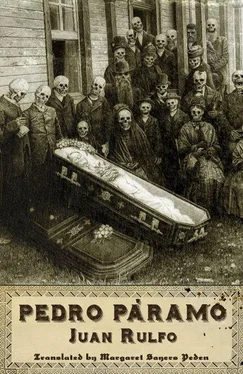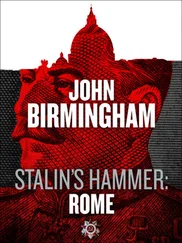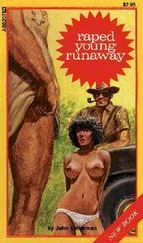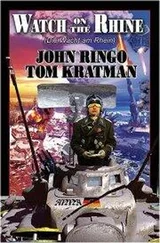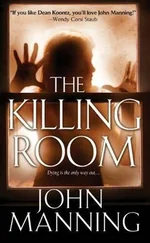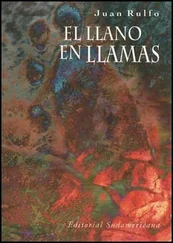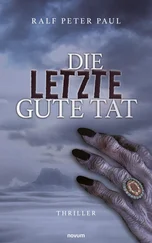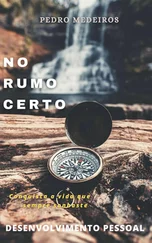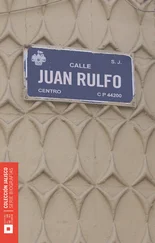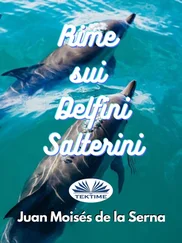He left me lame — you can see that — and, sorry to say, without the use of my arm. But he didn’t kill me. They say that ever since then I’ve had one wild eye. From the scare. I tell you, though, it made me more of a man. The heavens are bountiful. And don’t you ever doubt it.”
“Who was that?”
“How should I know? Any one of dozens. Pedro Paramo slaughtered so many folks after his father was murdered that he killed nearly everybody who attended that wedding. Don Lucas Paramo was supposed to give the bride away. And it was really by accident that he died, because it was the bridegroom someone had a grudge against. And since they never found out who fired the bullet that struck him down, Pedro Paramo wiped out the lot. It happened over there on Vilmayo ridge, where there used to be some houses you can’t find any trace of now….Listen….Now that sounds like her. Your ears are younger.
You listen. And then tell me what she says.”
“I can’t understand a thing. I don’t think she’s talking; just moaning.”
“What’s she moaning about?”
“Well, who knows.”
“It must be about something. No one moans just to be moaning. Try harder.”
“She’s moaning. Just moaning. Maybe Pedro Paramo made her suffer.”
“Don’t you believe it. He loved her. I’m here to tell you that he never loved a woman like he loved that one. By the time they brought her to him, she was already suffering — maybe crazy. He loved her so much that after she died he spent the rest of his days slumped in a chair, staring down the road where they’d carried her to holy ground. He lost interest in everything. He let his lands lie fallow, and gave orders for the tools that worked it to be destroyed. Some say it was because he was worn out; others said it was despair. The one sure thing is that he threw everyone off his land and sat himself down in his chair to stare down that road.
“From that day on the fields lay untended. Abandoned. It was a sad thing to see what happened to the land, how plagues took over as soon as it lay idle. For miles around, people fell on hard times. Men packed up and left in search of a better living. I remember days when the only sound in Comala was good-byes; it seemed like a celebration every time we sent someone on his way. They went, you know, with every intention of coming back.
They asked us to keep an eye on their belongings and their families. Later, some sent for their family but not their things. And then they seemed to forget about the village, and about us — and even about their belongings. I stayed because I didn’t have anywhere to go.
Some stayed waiting for Pedro Paramo to die, because he’d promised to leave them his land and his goods and they were living on that hope. But the years went by and he lived on, propped up like a scarecrow gazing out across the lands of the Media Luna.
“And not long before he died we had that Cristeros war, and the troops drained off the few men he had left. That was when I really began to starve, and things were never the same again.
“And all of it was don Pedro’s doing, because of the turmoil of his soul. Just because his wife, that Susanita, had died. So you tell me whether he loved her.”
It was Fulgor Sedano who told him:
“Patron. You know who’s back in town?”
“Who?”
“Bartolome San Juan.”
“How come?”
“That’s what I asked myself. Wonder why he’s come back?”
“Haven’t you looked into it?”
“No. I wanted to tell you first. He didn’t inquire about a house. He went straight to your old place. He got off his horse and moved in his suitcases, just as if you’d already rented it to him. He didn’t seem to have any doubts.”
“And what are you doing about it, Fulgor? Why haven’t you found out what’s going on? Isn’t that what you’re paid to do?”
“I was a little thrown off by what I just told you. But tomorrow I’ll find out, if you think we should.”
“Never mind about tomorrow. I’ll look into the San Juans. Both of them came?”
“Yes. Him and his wife. But how did you know?”
“Wasn’t it his daughter?”
“Well, the way he treats her, she seems more like his wife.”
“Go home and go to bed, Fulgor.”
“With your leave.”
I waited thirty years for you to return, Susana. I wanted to have it all. Not just part of it, but everything there was to have, to the point that there would be nothing left for us to want, no desire but your wishes. How many times did I ask your father to come back here to live, telling him I needed him. I even tried deceit.
I offered to make him my administrator, anything, as long as I could see you again. And what did he answer? “No response,” the messenger always said. “Senor don Bartolome tears up your letters as soon as I hand them to him.” But through that boy I learned that you had married, and before long I learned you were a widow and had gone back to keep your father company.
Then silence.
The messenger came and went, and each time he reported: “I can’t find them, don Pedro.
People say they’ve left Mascota. Some say they went in one direction, and some say another.”
I told him: “Don’t worry about the expense. Find them. They haven’t been swallowed up by the earth.”
And then one day he came and told me:
“I’ve been all through the mountains searching for the place where don Bartolome San Juan might be hiding and at last I found him, a long way from here, holed up in a little hollow in the hills, living in a log hut on the site of the abandoned La Andromeda mines.”
Strange winds were blowing then. There were reports of armed rebellion. We heard rumors. Those were the winds that blew your father back here. Not for his own sake, he wrote in his letter, but your safety. He wanted to bring you back to civilization.
I felt that the heavens were parting. I wanted to run to meet you. To envelop you with happiness. To weep with joy. And weep I did, Susana, when I learned that at last you would return.
Some villages have the smell of misfortune. You know them after one whiff of their stagnant air, stale and thin like everything old. This is one of those villages, Susana.
“Back there, where we just came from, at least you could enjoy watching things being born: clouds and birds and moss. You remember? Here there’s nothing but that sour, yellowish odor that seems to seep up from the ground. This town is cursed, suffocated in misfortune.
“He wanted us to come back. He’s given us his house. He’s given us everything we need.
But we don’t have to be grateful to him. This is no blessing for us, because our salvation is not to be found here. I feel it.
“Do you know what Pedro Paramo wants? I never imagined that he was giving us all this for nothing. I was ready to give him the benefit of my toil, since we had to repay him somehow. I gave him all the details about La Andromeda, and convinced him that the mine had promise if we worked it methodically. You know what he said? ‘I’m not interested in your mine, Bartolome San Juan. The only thing of yours I want is your daughter. She’s your crowning achievement.’
“He loves you, Susana. He says you used to play together when you were children. That he knows you. That you used to swim together in the river when you were young. I didn’t know that. If I’d known I would have beat you senseless.”
“I’m sure you would.”
“Did I hear what you said? ‘I’m sure you would’?”
“You heard me.”
“So you’re prepared to go to bed with him?”
“Yes, Bartolome.”
“Don’t you know that he’s married, and that he’s had more women than you can count?”
“Yes, Bartolome.”
Читать дальше
